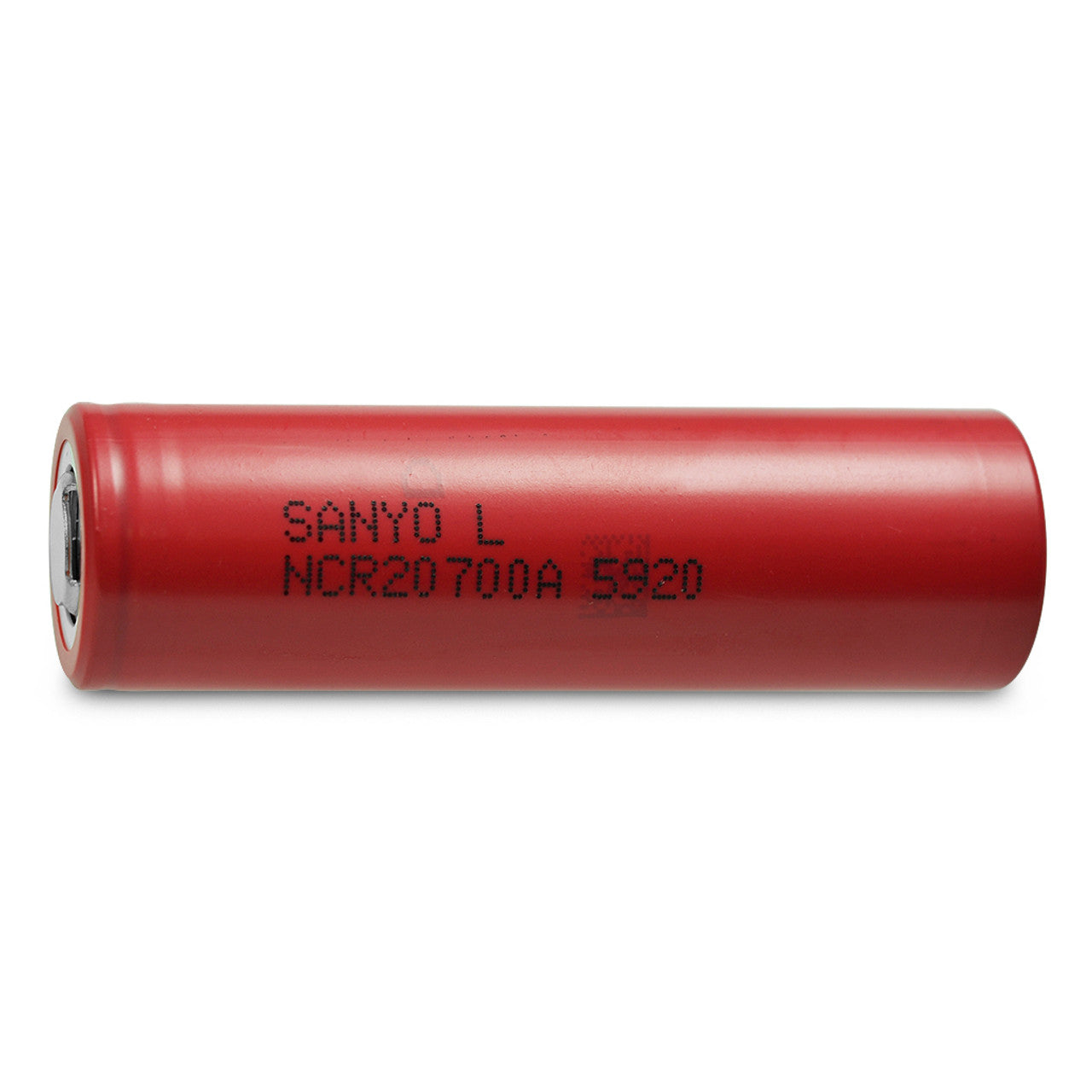Key Features
- Strong Capacity Output: 3300mAh capacity supports extended operating time.
- High Power Delivery: Capable of delivering up to 30A continuous discharge.
- Efficient Charging Design: CC-CV charging at 4.20V with a 2200mA standard current.
- Thermal Stability: Designed to operate effectively from -20°C to +60°C.
- Compact Energy Density: High volumetric and gravimetric energy density for space-efficient designs.
Overview
The Sanyo NCR20700A battery is designed for applications that demand both high discharge capability and reliable energy storage. With a typical capacity of 3300mAh and a 30A continuous discharge rating, this flat top lithium-ion cell delivers consistent performance under demanding conditions. Its optimized charging characteristics and durable construction make it an excellent choice for professional battery pack designs and high-power electronics.
Applications / Uses
- Power tool battery systems
- Electric mobility platforms
- Industrial equipment
- Commercial battery pack assemblies
- High-output electronic devices
Specifications
| Manufacturer | Sanyo |
| Model | NCR20700A |
| Battery Size | 20700 |
| Positive Terminal | Flat Top |
| Nominal Capacity | 3300mAh typical / 3150mAh minimum |
| Max Continuous Discharge | 30A |
| Nominal Voltage | 3.6V |
| Maximum Voltage | 4.2V |
| Discharge Cut-off Voltage | 2.5V |
| Protection | No (Unprotected) |
| Rechargeable | Yes |
| Approx. Dimensions | 20.35mm x 70.3mm |
| Approx. Weight | 60g |
⚠ Important Safety Warnings
Improper handling or misuse of this lithium-ion battery can result in FIRE, EXPLOSION, or THERMAL RUNAWAY, causing personal injury, property damage, or death. Users must read and follow all safety guidelines before purchase and use. Click here to review the full safety guidelines.
- Critical Warning: Never carry loose batteries in your pocket, purse, or bag. Loose batteries can come into contact with metal objects like keys or coins, causing a short circuit, which may result in severe burns, fire, or explosion. Always store or transport batteries in a protective case.
- Intended Use: This battery is designed for integration into protected battery packs with a Battery Management System (BMS) or Protection Circuit Board (PCB). It is not intended for standalone use or for e-cigarettes, vaporizers, or similar devices.
-
Thermal Runaway: A chain reaction where heat from a failing battery
causes further overheating, potentially leading to fire or explosion.
- Causes: Overcharging, short circuits, physical damage, or exposure to high temperatures.
- Prevention: Use a smart charger, avoid damage, and store batteries in a cool, dry place.
- Storage & Transport: Always store batteries in protective cases to prevent accidental contact with metal objects. Never store loose batteries in pockets, purses, bags, or near conductive materials.
- Inspection: Do not use if the PVC wrapper, terminal insulator, or casing is damaged, dented, leaking, or bulging. Continued use could result in failure, fire, or explosion.
- Charging: Use a smart charger specifically designed for lithium-ion batteries and ensure the charger's voltage matches the battery's specifications. Never overcharge, over-discharge, or leave unattended while charging.
-
Prohibited Activities:
- Do not expose the battery to extreme heat, fire, or liquids.
- Do not short circuit, puncture, crush, or modify the battery.
- Do not charge or discharge beyond the manufacturer’s voltage range.
- Do not dispose of in regular trash—always recycle at approved facilities.
- Emergency Response: If the battery overheats, emits smoke, or swells, move it to a non-flammable surface (e.g., sand or concrete) and stop use immediately. In case of fire, use a Class D fire extinguisher or sand. Do not use water.
Disclaimer
18650Battery.com is not responsible for any damages, injuries, or claims arising from improper use, handling, or failure to follow these safety guidelines. Lithium-ion batteries require strict adherence to all safety protocols. It is the reseller's responsibility to ensure all safety warnings and product guidelines are effectively communicated to customers. Users and resellers assume full responsibility for the safe handling, usage, and distribution of this product.

